Picturesque and cozy Dortmund is the birthplace of the legendary Borussia football club and ancient brewing traditions. In addition to these well-known facts, the city boasts a considerable number of historical attractions: castles, cathedrals, unusual museums. Half of the territory of Dortmund is occupied by parks and landscape gardens, which makes the city one of the greenest in all of Germany.
Dortmund experienced two heydays - in the XIV and in the XIX centuries. In the Middle Ages, neighboring princes often envied the wealth and fame of local rulers, so the city often became the target of military raids and strife. Despite the fact that Dortmund is one of the centers of German industry, the air here is quite clean and the environment is in excellent condition.
What to see and where to go in Dortmund?
The most interesting and beautiful places for walking. Photos and a short description.
old town hall
The City Hall of Dortmund was built relatively recently by historical standards - at the end of the 19th century. This is a picturesque five-story Neo-Renaissance building. The very first town hall appeared in the city six centuries ago, but it has not survived to this day. When decorating the Old Town Hall, architectural elements of a historical building were used. After the Second World War, the town hall was restored after severe damage.
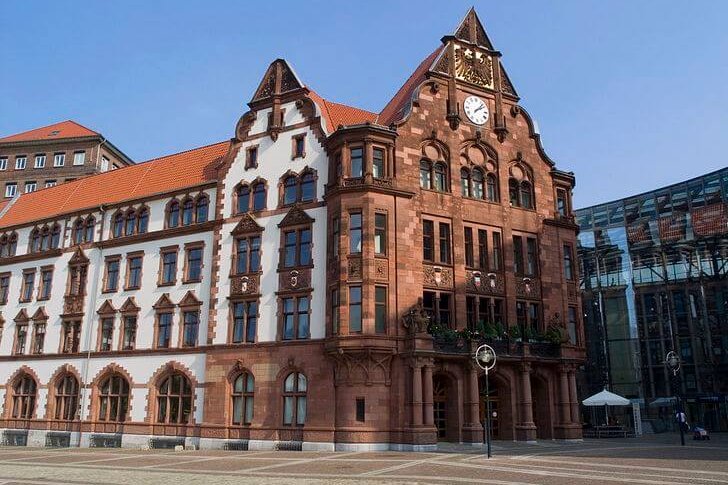
Address: Old Town Hall, Dortmund, Germany
Phone: +49 231 50-1
Opening hours: 09:00 - 17:00
Eagle tower
One of the towers of the city wall of Dortmund, restored in 1992 in a historical appearance. The new building was erected on the foundation of the XIII-XIV centuries. In order to avoid destruction, the base of the tower was reinforced with piles. Inside the Eagle Tower there is a city museum where you can look at collections of medieval armor and weapons, interesting archaeological finds and a model of the old city.
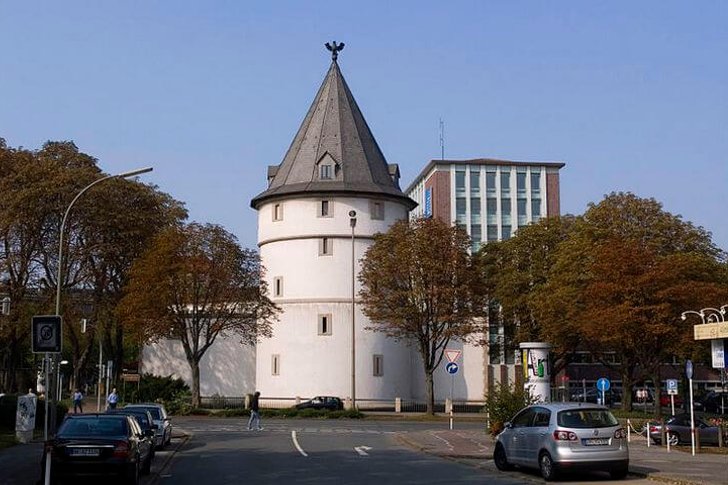
Address: Ornamental Tower, Dortmund, Germany
Phone: +49 231 50-1
Opening hours: 09:00 - 17:00
Church of St. Rinald
Temple dedicated to St. Rinald - the patron saint of Dortmund. The church is a symbol of the city and is often depicted on souvenirs. At the top of the 104-meter bell tower there is a weather vane in the form of an eagle (this bird is considered the symbol of Dortmund). The history of the church of St. Rinald began in the 9th century, since then the building has survived several destructions and fires. The construction of the end of the XIII century has survived to this day.
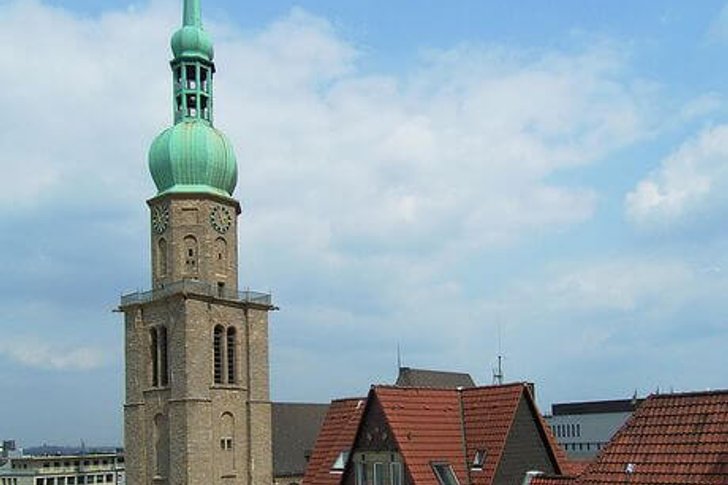
Address: St. Reinold's Church, Dortmund, Germany
Phone: +49 231 556178
Opening hours: 09:00 - 17:00
St. Peter's Church
Medieval temple, founded at the beginning of the XIV century. The location was chosen on the Hellweg road, the main route for the entire region. As was often the case in those days, construction dragged on for several centuries. The church spire was installed only by the middle of the 18th century. The main asset of the church is considered to be a unique altar, known as the "golden miracle of Westphalia". It depicts religious scenes from the gospel.
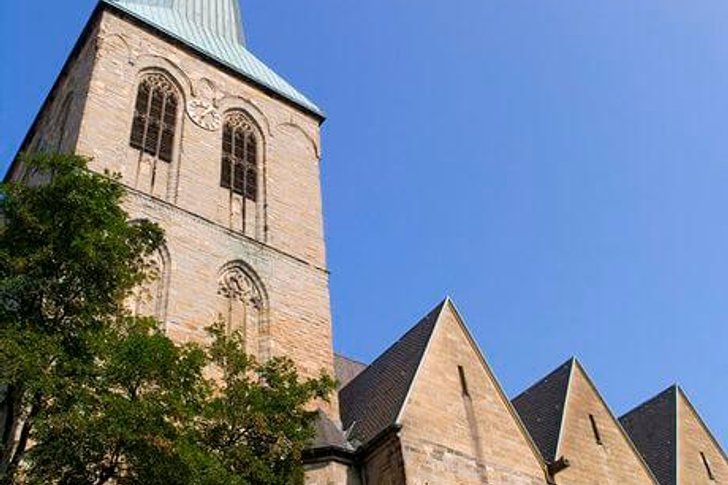
Address: St. Peter's Church, Dortmund, Germany
Phone: +49 231 567801
Opening hours: 09:00 - 17:00
Mine-museum "Workshop Zollern"
Industrial monument of the early 20th century. Until 1960, the building served as the administrative office of the coal mine. The structure resembles a picturesque red-brick Gothic castle, inside there is an impressive Machine Hall, where mining equipment of the late 19th and early 20th centuries is exhibited. The building of the mine together with the village "Kolonia Landwehr" is part of the tourist route "Industrial Heritage".
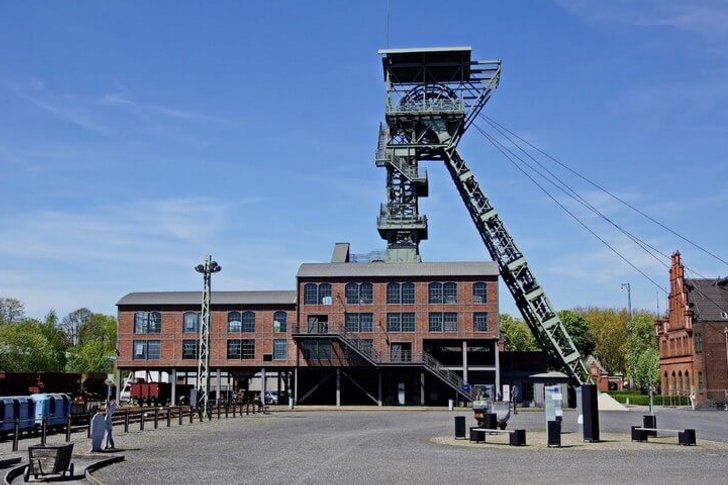
Address: Zeche Zollern Colliery Museum, Dortmund, Germany
Phone: +49 231 696137
Opening hours: 10:00 - 18:00
Brewery Museum "Brauerei-Museum Dortmund"
Dortmund is famous throughout Germany as the city where the most beer is produced. It even has a beer museum. It is located in the hall of one of the city's breweries. In the museum you can learn the fascinating history of brewing on the territory of Dortumnd and look at rare equipment: machines, steamers, containers. Also, visitors will be interested to get acquainted with the collection of old clay mugs and beer bottles.

Address: Brewery Museum Dortmund, Dortmund, Germany
Phone: +49 231 584804
Opening hours: 10:00 - 18:00
Hansa Coke Plant
An industrial landmark, a legacy of Dortmund's industrial heyday in the first half of the 20th century. Now the plant is a historical monument and is included in a popular tourist route. On the territory of the former production, visitors will see equipment for the extraction and processing of coal, and will also be able to observe the process of coking this mineral.
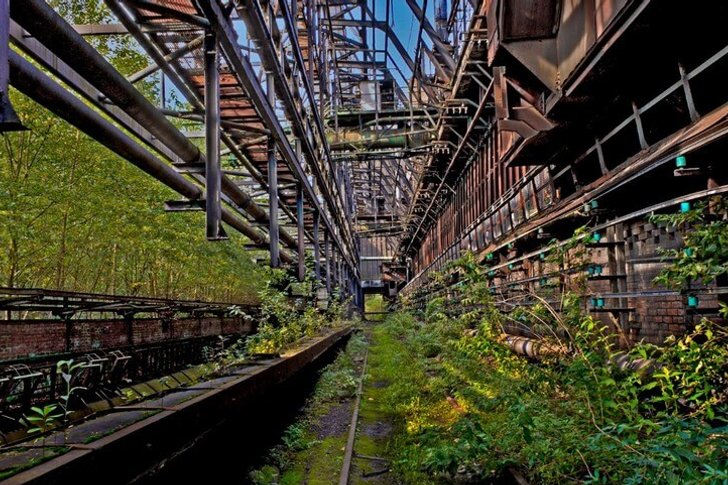
Address: Hansa Coke Plant, Dortmund, Germany
Phone: +49 231 550960
Opening hours: 09:00 - 17:00
German Football Museum
To design the museum building, a competition was held among the best architects in Europe. As a result, the design studio "HPP Architects" won. The Football Museum is a modern interactive exhibition that conveys the lively emotions of fans and players inside a football match. Each visitor will be able to feel like a participant in the game and experience the full range of sensations thanks to modern technologies.
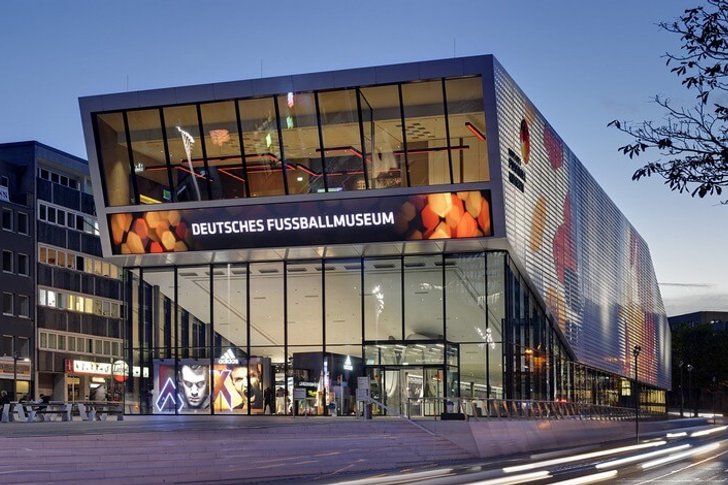
Address: German Football Museum, Dortmund, Germany
Phone: +49 231 9128000
Opening hours: 10:00 - 18:00
Cultural Center "Dortmund U-Tower"
Art space and cultural center located in a former brewery building. The factory tower was built in 1926 and at that time it was the tallest building in Dortmund. After the closure of production in 1994, all industrial buildings were demolished, and the tower was turned into a cultural center. Works of contemporary art of the XX-XXI centuries are exhibited here and innovative educational programs are being developed.
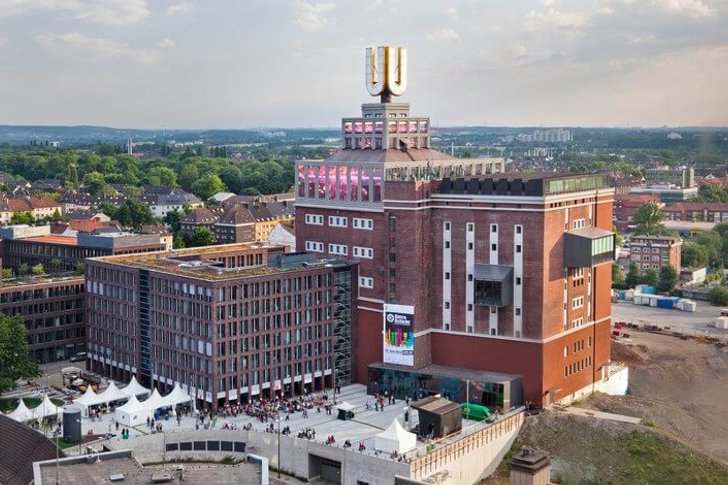
Address: Dortmund U-Tower Cultural Center, Dortmund, Germany
Phone: +49 231 4961400
Opening hours: 10:00 - 18:00
Delvig's house
Castle of the 13th century, former possessions of the noble knight Hermann von Delvig and his descendants. Due to numerous rebuildings and reconstructions over several centuries, a mixture of architectural styles is observed in the appearance of the building. After the family of von Delvig was interrupted, the castle passed into municipal ownership. The city authorities rent it out, so it is impossible to enter the territory with a tour.
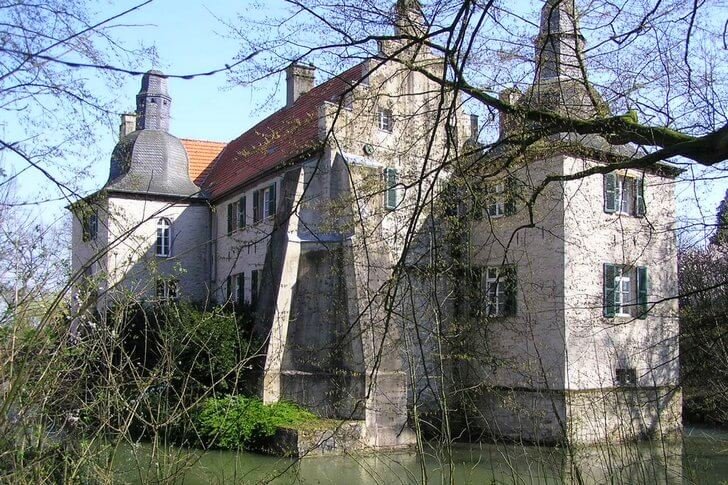
Address: Delwig House, Dortmund, Germany
Phone: +49 231 505200
Opening hours: 09:00 - 17:00
Florianturm
City radio and television tower, reaching a height of 211.4 meters. Inside there is an observation deck for tourists and a restaurant. The tower was erected in the middle of the 20th century and at that time it was the tallest in all of Germany. In the early 2000s the tower had infrastructure for bungee jumping, but after the cable broke and the death of a person, jumping was prohibited. Floriantum is owned by a German telecommunications company.
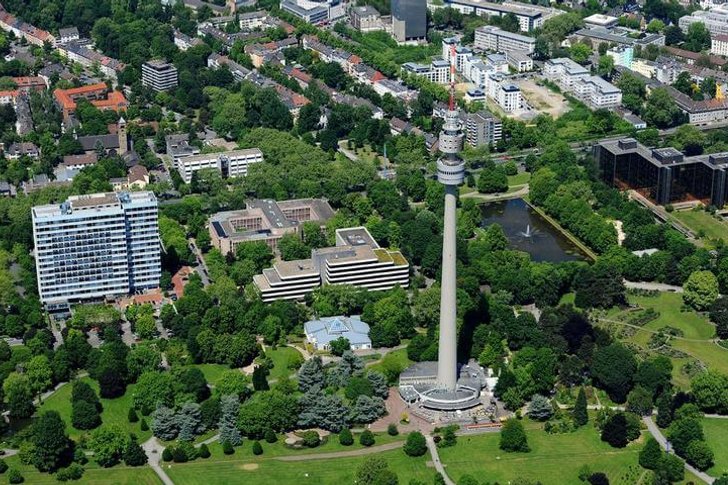
Address: Florianturm, Dortmund, Germany
Phone: +49 231 501501
Opening hours: 10:00 - 18:00
Signal Iduna Park
The largest stadium in Germany, recognized by FIFA as one of the best football fields in the world. Signal Iduna Park is the home arena for the team of the famous football club Borussia. The stadium's southern stand with standing places can accommodate up to 25,000 people. During matches, it is filled to capacity with fans. The total capacity of the stadium is more than 80 thousand people.
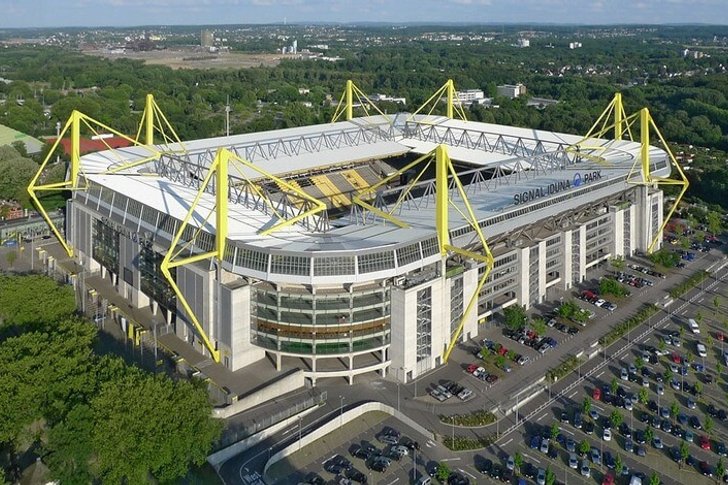
Address: Signal Iduna Park, Dortmund, Germany
Phone: +49 231 9000
Dortmund Zoo
The city zoo is a popular place for family entertainment. On weekends it is always crowded and fun, as the locals love to bring their children here. There are 230 species of animals (1500 individuals) on the territory of the zoo. A bird park is allocated in a separate zone, where parrots, peacocks, pheasants, owls live. Some of the inhabitants of the zoo can be fed under the supervision of employees.
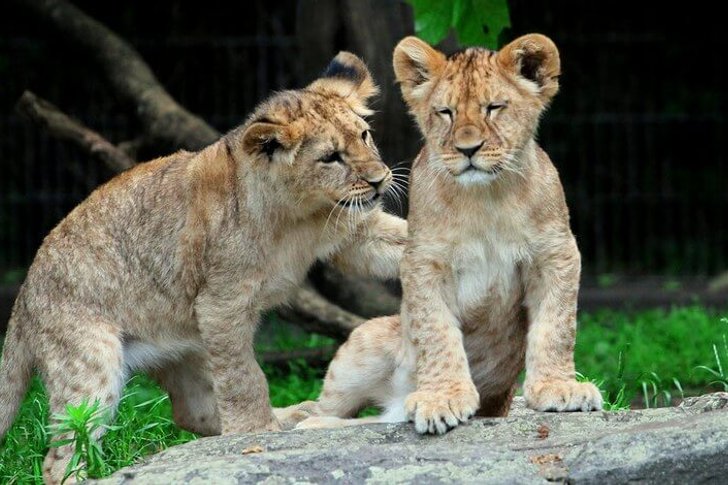
Address: Dortmund Zoo, Dortmund, Germany
Phone: +49 231 502567
Opening hours: 09:00 - 18:00
romberg park
Dortmund Botanical Garden, covering 65 hectares (one of the largest in the world). The garden appeared in the city at the beginning of the 19th century thanks to the efforts of the family of the musician Romenberg. Cacti, palm trees, ferns, medicinal and exotic shrubs grow in park greenhouses. In total, about 4.5 thousand representatives of the flora grow in the Dortmund Botanical Garden.
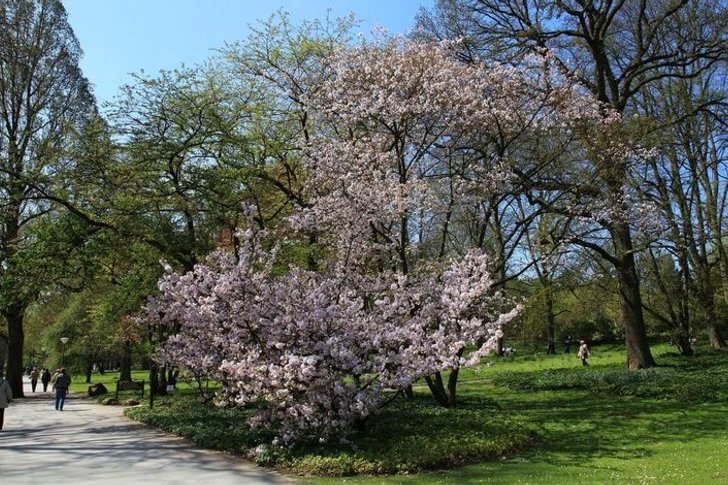
Address: Rombergpark, Dortmund, Germany
Phone: +49 231 502565
Opening hours: 24/7
Westfalenpark
The park, on the territory of which there is a large rose garden. It grows more than 3 thousand species of roses. Here are collected samples of this beautiful flower from all over the world - exotic, ancient and newly bred varieties. The territory of the Westfalenpark is divided into zones: a medieval rose garden, an art nouveau garden, an antique garden, a city rose garden, German roses, and so on. Park employees conduct scientific research to identify unknown types of roses.
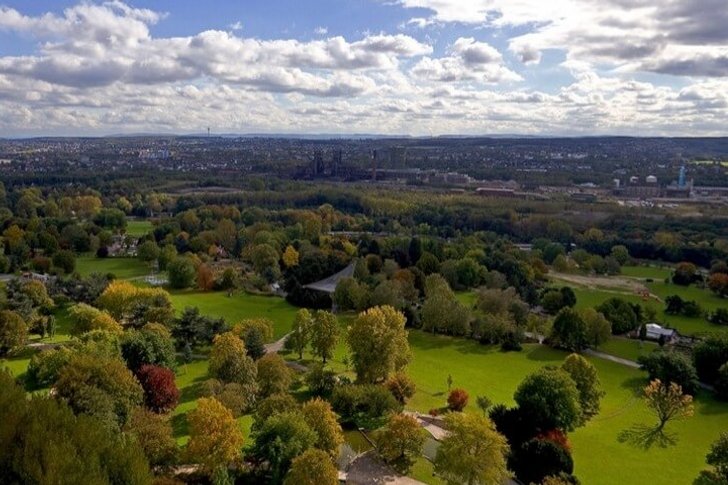
Address: Westfalenpark, Dortmund, Germany
Phone: +49 231 502565
Opening hours: 24/7
